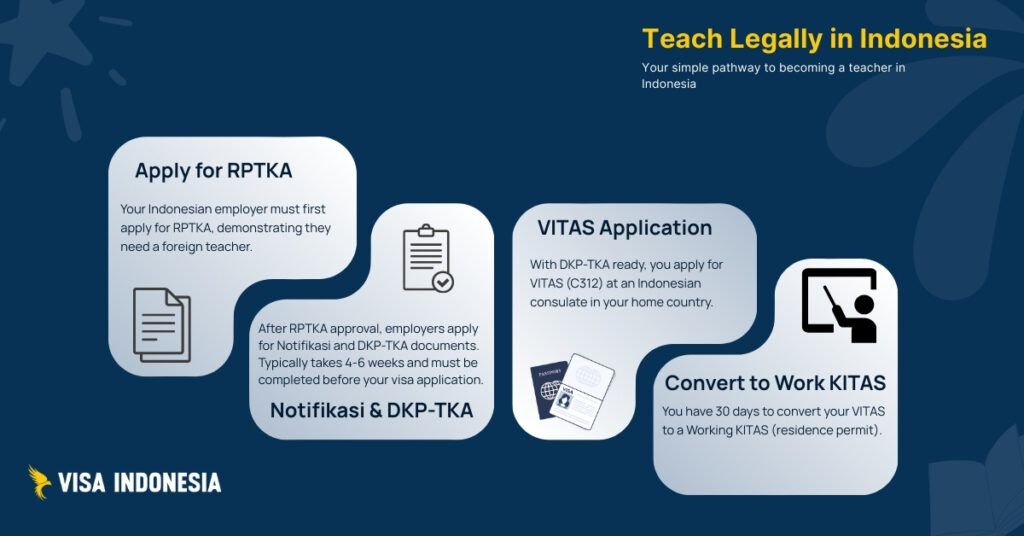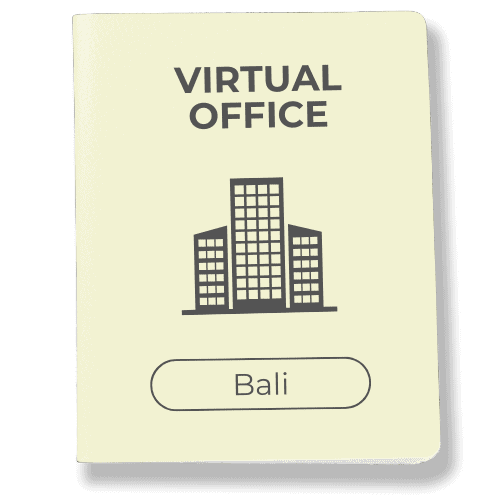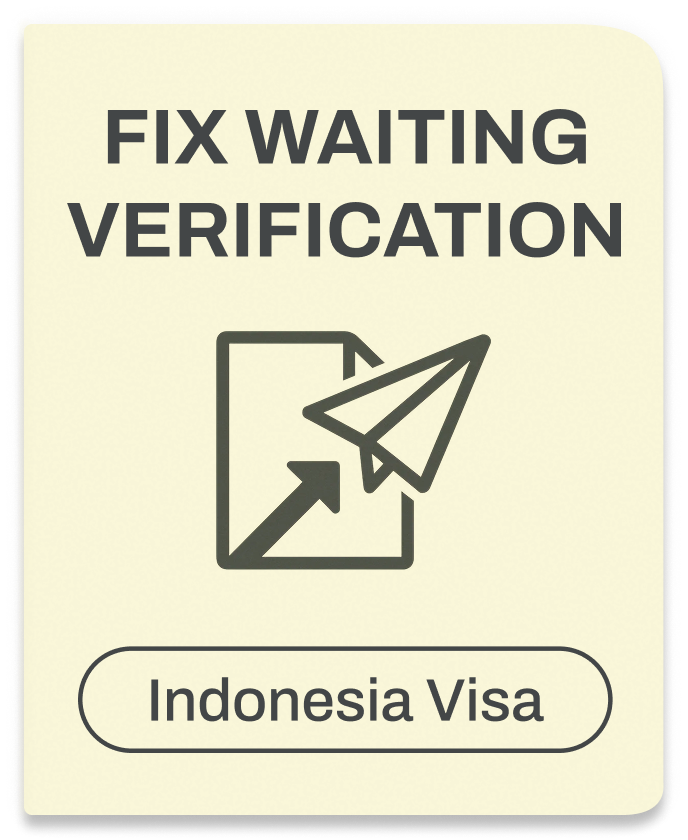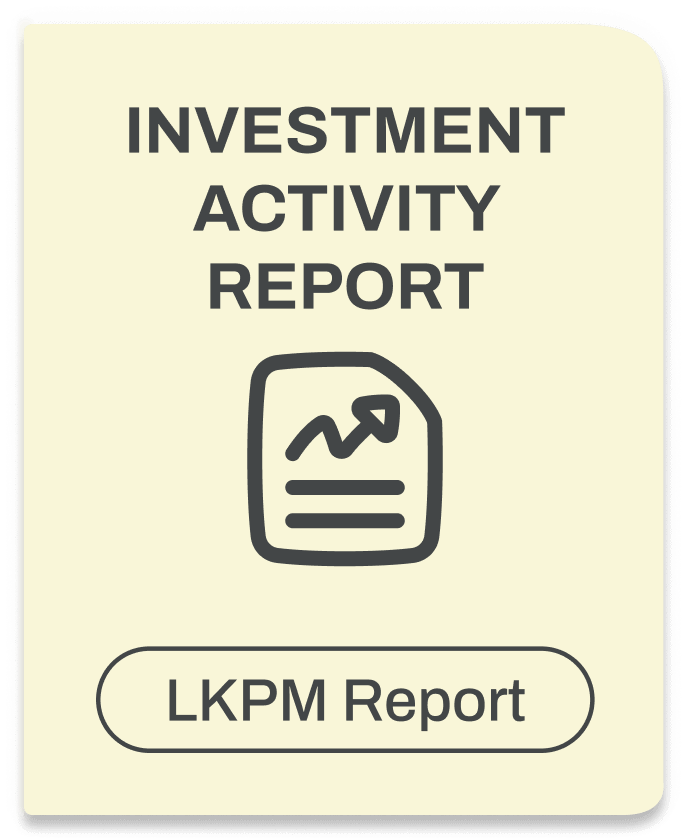Teaching in Indonesia: Complete Guide for English Teachers in 2025

Snapshot: Can You Teach English in Indonesia?
Yes, you can have an amazing teaching career in Indonesia! This diverse nation of beautiful beaches and coral reefs offers incredible teaching opportunities for qualified English teachers. However, you’ll need the right credentials and a proper working visa to teach legally in this country with such rich cultural heritage.
Teaching English in Indonesia attracts many teachers from around the world. The country welcomes native English speakers, but requirements vary depending on where you want to teach. Private language schools are more flexible with degree requirements, while international schools prefer teachers with extensive teaching experience and proper teaching licenses.
The hiring season varies by school type. International schools recruit heavily from January to April with start dates in August, while most teachers find that language schools hire year round. As for your average salary, expect anywhere from $800 to $3,500 per month – enough to live comfortably while exploring this incredible country.
Fast Facts:
- Average Salary: Private language schools ($800-$1,500), International schools ($2,000-$3,500)
- Working Visa Requirements: KITAS work permit required (6-8 week process from home country)
- Degree Requirements: Bachelor’s degree mandatory, TEFL certification essential
- Best Teaching Opportunities: Jakarta (bustling capital), Bali, and other major cities year round
Indonesia’s Teaching Landscape (What Teaching Jobs Actually Exist)

Understanding Indonesia’s diverse education system helps you target the right teaching opportunities. This Southeast Asian nation offers various paths for your teaching journey, each with different requirements and benefits.
Public schools rarely hire foreign teachers directly. When they do hire international teachers, it’s usually through government programs, and the compensation doesn’t allow most teachers to live comfortably. Many schools prefer to work with local teachers for these positions.
Private schools follow Indonesian curriculum but often add English programs. They occasionally hire English teachers for specialized classes, though teaching jobs are limited and the average salary is modest compared to other options.
International schools represent the premium teaching opportunities in Indonesia. These schools follow curricula like IB or Cambridge systems, serving expat families and business professionals. They offer the best average salary and benefits package, but schools prefer teachers with significant teaching experience and proper credentials.
Private language schools are your most accessible entry point for teaching English in Indonesia. These institutions serve everyone from young learners to adult learners, including business professionals seeking business English skills. Language schools hire the most foreign teachers and typically have more flexible requirements.
Most teachers find success at international schools or private language schools. These employers actively seek native English speakers and will sponsor your working visa, making them ideal for starting your teaching career abroad.
Teaching Requirements & TEFL Certification (By School Type)
Your qualifications determine which teaching opportunities will open up in Indonesia. Schools prefer different credentials based on their student population and teaching style requirements.
Private Language Schools & TEFL Jobs
For English teaching jobs at language schools, you’ll need a bachelor’s degree in any field plus TEFL certification. The degree doesn’t need to be education-related – business, science, or liberal arts all work for teaching English. What matters most is having proper credentials and your TEFL certificate.
Many schools prefer native English speakers from English-speaking countries, though some consider qualified non-native speakers. Your TEFL course should be at least 120 hours and include practical teaching components for classroom management with both children and adult learners.
International Schools & Teaching Licenses
International schools have stricter requirements. You’ll need a teaching license from your home country, a bachelor’s degree in your subject area, and at least five years of teaching experience. Schools prefer teachers who can demonstrate successful classroom management and adapt their teaching style to Indonesian students.
For teaching children at elementary level, your degree can be in education or any subject. Middle and high school positions require subject-specific degrees. Many schools prefer or require master’s degrees, especially for senior positions or curriculum leadership roles.
Additional Credentials for Teaching Abroad
Regardless of where you teach, you’ll need a clean background check from your home country. Americans need FBI clearance, while other nationalities require equivalent documentation. You’ll also complete health insurance requirements and medical examinations in Indonesia.
There’s typically an unofficial age limit around 60, though this can vary depending on your teaching experience and the school’s needs. Some employers are flexible, especially for teachers with exceptional qualifications or specialized skills.
Legal Working Visa Process: Step-by-Step Compliance

Working legally in Indonesia requires following a specific visa application process. Don’t take shortcuts here – immigration violations can result in fines, deportation, and bans from re-entering this beautiful country.
Here’s the legal pathway to teach in Indonesia:
Step 1: RPTKA (Work Authorization Plan) Your Indonesian employer must first apply for RPTKA, demonstrating they need a foreign teacher. This proves local teachers can’t fill the position, which is required for all teaching jobs in Indonesia.
Step 2: Notifikasi + DKP-TKA Processing After RPTKA approval, employers apply for Notifikasi and DKP-TKA documents. The DKP-TKA serves as your actual work permit. This step typically takes 4-6 weeks and must be completed before your visa application.
Step 3: VITAS Application from Home Country With DKP-TKA ready, you apply for VITAS (C312) at an Indonesian consulate in your home country. You cannot start this process while in Indonesia on a tourist visa – you must be in your home country.
Step 4: KITAS Conversion Upon Arrival Once you enter Indonesia on your VITAS, you have 30 days to convert it to KITAS (residence permit). Your employer should guide you through this final step of the working visa process.
The entire timeline from start to finish is usually 6-8 weeks, sometimes longer during busy periods. Plan accordingly and don’t book your one way ticket until you have proper documentation.
Required Documents from Applicant:
- RPTKA Recommendation Letter – Valid for the duration of your working contract
- IMTA (Izin Mempekerjakan Tenaga Kerja Asing) – Work permit valid for 6 months/1 year
- DPKK Found – Payment to Ministry of Manpower (USD 100 per month)
- Sponsor Letter – From your employing company
- Guarantee Letter
- Color copy of Insurance Document
- Bachelor’s Degree Certificate in English – Must be legalized
- Reference Letter from previous employer with minimum 5 years work history, OR Certificate of Occupation Specialization
- Bank Statement – Minimum USD 3,000
- Domicile Letter from Banjar or SKTT (Proof of Residence) – Required for onshore applications only
- Detailed Personal Information including:
- Email address
- Phone number
- Address in Indonesia
- Area of work
- Occupation
Required Documents from Employer/Company:
- Color scan of Mandatory Manpower Report (Wajib Lapor)
- Color scans of company documents:
- AKTA
- SK Menteri
- Izin Usaha
- NIB
- NPWP
- SKTU Company
- Color scan of Director’s ID or KTP
- Color scan of Employee’s ID with red background photo
- Color scan of Accounting personnel’s ID
- Color scan of HRD personnel’s ID
- Blank company letterhead containing email addresses, physical address, and phone number
- Company stamp
These illegal shortcuts can seriously damage your teaching career and future opportunities in Asian countries.
Apply for Your Working Visa With Visa-Indonesia.com
We get it. Dealing with paperwork can be overwhelming. You’re juggling your home country, Indonesian consulates, your new employer, and multiple agencies – while preparing for a major life change. So, we gladly help you take this burden completely off your shoulders. We’ve guided thousands of teachers through this exact process and know every potential pitfall.
We handle everything from initial consultation to final KITAS conversion. We determine your exact visa type, coordinate with your employer, and guide you through every consulate step. No guesswork, no missed deadlines, no rejections.
Our 100% approval guarantee means zero risk of delays or rejections. You get dedicated English-speaking support throughout, so you understand exactly what’s happening. Our streamlined approach cuts processing time significantly – you’ll start teaching sooner.
Ready to secure your Indonesian teaching position? Contact us today and start your visa application with confidence.
Teaching Salaries, Benefits & Living Costs in Indonesia
Your earning potential varies dramatically based on where you teach and your location. Most teachers find they can live comfortably while saving money in Indonesia’s affordable economy.
Private Language Schools Compensation
Language schools typically pay $800-$1,500 per month. In Jakarta’s city centre or other major cities, you might reach higher amounts. Teachers often work hourly schedules, so income varies depending on your class load and student demand.
Benefits are usually basic – perhaps health insurance or professional development opportunities. Don’t expect housing allowances or flight reimbursements from most language schools, though some provide support finding accommodation.
International Schools Salary & Benefits
International schools offer the best compensation packages for teaching English in Indonesia. Expect $2,000-$3,500 monthly, with top Jakarta schools paying even more for experienced teachers. Your salary often reflects your teaching experience and additional qualifications.
Benefits at international schools are comprehensive. Most provide housing allowances or furnished apartments, annual flight tickets home, health insurance, and funding for continued education. Some offer tuition discounts for teachers with school-age children.
Cost of Living & Saving Potential
Indonesia offers excellent value for teachers. Outside Jakarta, you can rent a comfortable one bedroom apartment for $200-400 monthly. Food costs are remarkably low – meals at an inexpensive restaurant cost $2-4, and street food is even cheaper.
Transportation, utilities, and entertainment are all affordable. Many teachers find they can maintain a comfortable lifestyle while saving significant money. Jakarta has higher costs but also higher salaries, while cities like Bali, Bandung, or Surabaya offer lower expenses with slightly reduced pay.
The economic growth in Indonesia means improving infrastructure and expanding opportunities for teachers willing to explore beyond traditional expat areas.
Finding Teaching Jobs: Hiring Cycles & Job Search Strategy
Timing and strategy matter when seeking teaching opportunities in Indonesia. Different school types follow distinct hiring patterns, so plan your teaching journey accordingly.
When Schools Recruit Teachers
International schools follow predictable cycles. They conduct most hiring from January through April for start dates in August when the Indonesian school year begins. Some schools have mid-year openings, but August represents the primary hiring season.
Language schools hire year round due to constant student enrollment and teacher turnover. This makes them excellent for teachers who need to find work quickly or prefer flexible start dates.
Where to Find Legitimate Teaching Jobs
Begin with reputable international recruiters like Search Associates, International School Services (ISS), or Teach Away. These organizations screen schools and help match teachers with appropriate teaching opportunities based on experience and preferences.
For TEFL jobs and language school positions, check established job boards like Dave’s ESL Cafe, TEFL.com, or local Indonesian employment sites. Many schools also post teaching jobs directly on their websites.
Don’t overlook direct applications. If you’re interested in specific schools, regularly check their websites and submit applications even without posted openings. Many schools keep qualified applications on file for future opportunities.
Evaluating Job Offers & School Quality
Not all teaching opportunities are equal. Ask these essential questions:
- What curriculum and teaching style do you use?
- How many students per class for both children and adult learners?
- What support do new teachers receive for classroom management?
- Can you connect me with current foreign teachers?
- What are exact working hours and additional responsibilities?
Be cautious of offers that seem unrealistic or employers who avoid discussing working visa sponsorship details clearly.
Teaching Contracts & Protecting Your Career

Your employment contract protects your teaching career in Indonesia. Review all terms carefully and understand your commitments before signing any agreement.
Essential Contract Elements
Pay attention to probation periods – many contracts include 3-6 months where either party can terminate with minimal notice. Understand these terms completely before accepting any teaching position.
Look carefully at early termination clauses. Some contracts require repaying relocation costs or other benefits if you leave before completing your full agreement. This can amount to thousands of dollars and significantly impact your financial plans.
Professional development clauses matter for your long-term teaching career. Quality schools invest in teacher growth, while problematic employers might restrict your ability to pursue additional certifications or training.
Common Contract Issues
Housing arrangements vary significantly between schools. Some provide furnished accommodation while others give housing allowances. Understand exactly what’s included and what you’ll need to arrange independently.
Flight reimbursements often have conditions attached. You might need to complete one or two full years to receive return tickets. Some schools pro-rate these benefits if you leave early, so understand the financial implications.
Health insurance coverage varies widely between employers. International schools usually offer comprehensive medical coverage, while language schools might provide only basic benefits. Know what’s covered and what additional insurance you might need.
Warning Signs of Problematic Employers
Be wary of schools that:
- Rush your decision without adequate time to review contracts
- Are vague about working visa processes or suggest illegal alternatives
- Have high teacher turnover or refuse to provide references from current staff
- Offer significantly above-market salaries without clear justification
- Ask you to pay costs that should be employer responsibilities
Trust your instincts about potential employers. If something feels wrong during hiring, it probably is.
Special Teaching Situations & Considerations

Not every teacher fits standard categories. Here are special circumstances and how to handle them successfully.
Non-Native English Speakers Teaching English
Indonesia officially prefers native English speakers from traditional English-speaking countries. However, qualified non-native speakers with excellent English skills can find teaching opportunities, especially at private language schools that serve diverse student populations.
Your TEFL certification becomes even more critical as a non-native speaker. Consider advanced certifications like DELTA or Trinity DipTESOL to distinguish yourself from native speaker competitors and demonstrate superior teaching skills.
Subject Teachers at International Schools
If you want to teach subjects beyond English (math, science, history), you’ll need a degree in that specific subject plus proper teaching license. International schools are very strict about subject-area qualifications for their curriculum requirements.
Consider starting with English teaching if you lack the right subject degree. Many schools help experienced teachers transition to other subjects over time as they demonstrate classroom management skills and cultural adaptation.
Teaching Couples and Families
Married teachers or those with children can include family members on KITAS applications. Spouses receive dependent visas that don’t permit work (they’d need separate work permits), while children can attend Indonesian schools or international schools.
Many international schools offer tuition discounts for teachers’ children, which can save thousands annually. Factor these benefits into salary negotiations and overall compensation evaluation.
Changing Schools Mid-Contract
Switching teaching jobs in Indonesia requires careful planning. You can’t simply resign from one school and start at another – you need to transfer your work permit, which requires cooperation from both employers and immigration authorities.
Some schools make this process difficult, especially if you’re leaving before your contract ends. Plan ahead and understand your legal and financial obligations before making any career moves.
Frequently Asked Questions About Teaching in Indonesia
Can I teach without a bachelor’s degree or TEFL certificate? No. Indonesian law requires foreign teachers to have at least a bachelor’s degree for working visa approval. TEFL certification isn’t legally mandated but is practically essential – very few schools hire teachers without proper training credentials.
Do I need 5 years of teaching experience for all jobs? Not for private language schools, but yes for most international schools. This is their internal hiring requirement, not Indonesian law. Some newer international schools might be more flexible, especially for hard-to-fill teaching positions.
What happens if I work on the wrong visa? Penalties are severe: fines up to $7,000, immediate deportation, and entry bans from six months to several years. These consequences can destroy your teaching career prospects throughout Asian countries. Always get proper authorization before starting any teaching job.
How long does the working visa process actually take? From start to finish, expect 6-8 weeks minimum. This assumes your employer begins the process immediately without complications. During busy hiring seasons, it can take longer. Plan accordingly and don’t book flights until you have your VITAS approved.
What’s the best way to enter Indonesia for teaching? Once you have proper working visa documentation, you can purchase your one way ticket and plan your teaching journey. Many teachers find it helpful to arrive a week or two before their start dates to handle final paperwork and get settled.
Teaching English in Indonesia offers an incredible opportunity to build your teaching career while experiencing rich cultural heritage, beautiful beaches, and warm, welcoming Indonesian students. The key is doing everything legally and working with reputable employers who support proper visa processes. Take time to get everything right from the beginning, and you’ll set yourself up for a successful and rewarding teaching experience in this amazing country.
Ready to Apply or Extend Your Visa?
Let our visa specialists handle your application.



















